Commentary to the Council of Europe Convention for the Protection of the Profession of Lawyer translated into Ukrainian
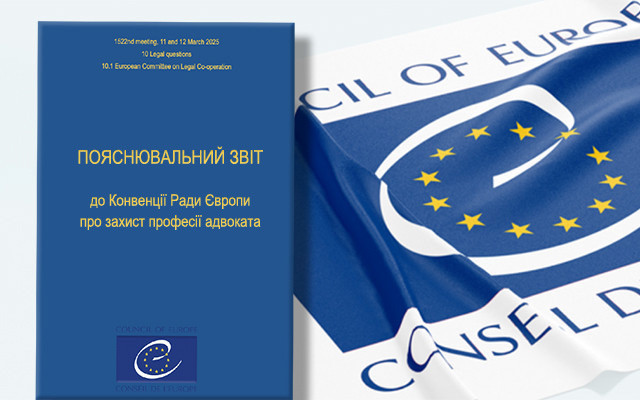
Along with the Convention on the Protection of the Profession of Lawyer, the Committee of Ministers of the Council of Europe also approved an explanatory report to it. This document is a kind of official commentary to be used by countries in the application of the international treaty.
The explanatory report to the Council of Europe Convention on the Protection of the Profession of Lawyer was translated into Ukrainian by the Ukrainian National Bar Association (the original document can be viewed here. And the text in Ukrainian can be downloaded here).
It should be reminded that Valentyn Gvozdiy, the Vice President of the UNBA, BCU, was directly involved in the development of both the Convention and the explanatory report within the framework of the Committee of Experts on the Protection of Advocates.
The Convention on the Protection of the Profession of Lawyer was a response to concerns about the increasing number of attacks, threats, harassment and intimidation of lawyers, as well as unlawful obstruction and interference in their professional activities.
The challenges faced by lawyers are varied in nature. Lawyers who handle sensitive or high-profile cases, particularly those involving human rights, criminal defense or political issues, may face harassment and intimidation tactics aimed at deterring them from representing certain clients or handling certain types of cases in the form of smear campaigns, surveillance and other forms of psychological pressure. In the worst cases, they may receive threats to their personal safety. Interference in the work of lawyers can take various forms, such as attempts by state authorities or non-state actors to influence the judicial process or pressure on lawyers to violate the attorney-client privilege. The confidentiality of the attorney-client relationship is a sensitive issue and is crucial to the practice of law, and therefore deserves special protection from unlawful interference by the authorities. Such interference undermines the independence of the legal profession and the effective functioning of the rule of law. The ability of lawyers to practice their profession can also be undermined by harassment, prejudice and negative stereotyping arising from their membership or perceived membership in a particular group.
When lawyers are obstructed or hindered in the exercise of their professional activities, this has a direct and negative impact on their clients' rights to a fair trial and access to justice. This is especially true in cases involving vulnerable groups who may already face barriers to access to legal representation. Lawyers involved in the defense of unpopular cases or clients may face stigma, both professional and personal, which affects their practice and well-being. In some cases, there may be insufficient support or inadequate response from the authorities to protect lawyers from such adverse situations; in severe cases, state authorities may be the source of such criticism. Lack of support or public discrediting of (groups of) lawyers may contribute to the creation of a hostile environment for them. This demonstrates the need for structured legal protection that ensures that lawyers can perform their professional duties and activities without fear of interference, intimidation or harm. This is the main purpose of the Convention, as it is crucial for ensuring the rule of law and the protection of fundamental rights and freedoms so that lawyers can freely and safely carry out their activities in the interests of their clients.
The Convention was drafted taking into account the wide variety of legal systems and ways of organizing the legal profession in the member states of the Council of Europe. In civil law countries, lawyers generally advise and represent clients in court. Conversely, in common law systems, lawyers perform different functions: some lawyers provide legal advice and deal with transactions, while others represent clients in court. Of course, there are rules governing the profession that are specific to each country and often depend on legal culture and history. This diversity reflects the rich legal heritage of the member states and its constant evolution.
Earlier, the UNBA also translated the text of the Convention for the protection of the profession of lawyer.
Popular news

Discussion
Why lowering the age of marriage lacks legal logic
Although until 2012 there was a provision in family law that allowed children to marry from the age of 14 under certain circumstances, its return to Ukrainian law would contradict international obligations and the logic of criminal law.
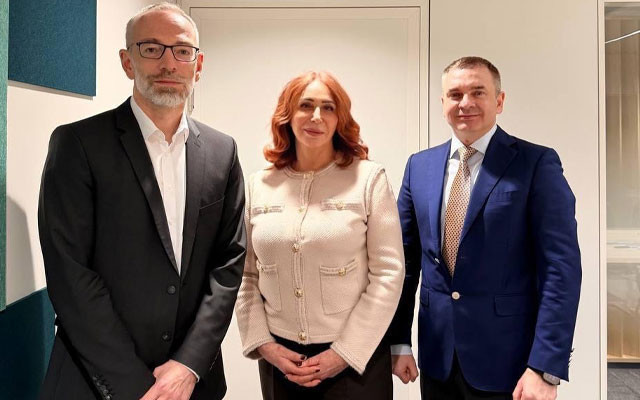
European integration
Open dialogue between the UNBA and the European Commission on the path to EU
The Ukrainian National Bar Association held a working meeting in Brussels with Mr Wolfgang Nozar, Head of Unit for Governance, Rule of Law and Financial Assistance, Directorate-General for Enlargement and Eastern Neighbourhood (DG ENEST), European Commission.

Self-government
A report on Ukrainian advocacy was presented in the European Parliament
Can a shadow report on advocacy replace the political framework of the Roadmap on the rule of law with demands for the restructuring of self-government? Where is the line between accountability and the seizure of institutions? And how can we respond to narratives with data rather than impressions?
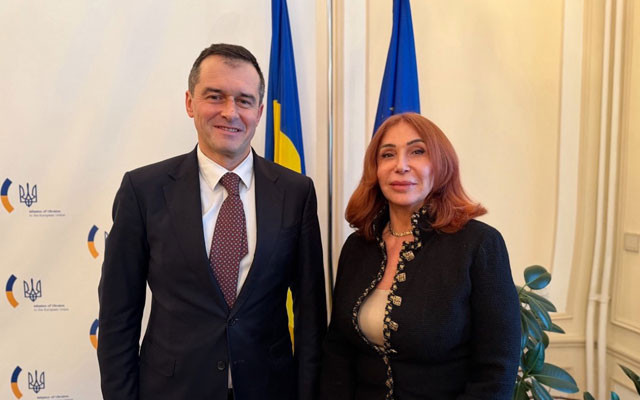
European integration
UNBA and Ukraine's representation to the EU have synchronized their priorities
On February 5, in Brussels, the President of the UNBA, BCU Lidiya Izovitova held a working meeting with the Ambassador Extraordinary and Plenipotentiary of Ukraine, Representative of Ukraine to the European Union Vsevolod Chentsov.
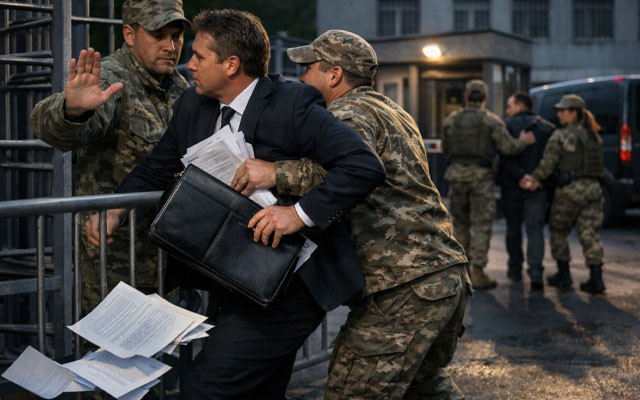
Guarantees of the practice of law
Proceedings opened following attack on advocate in Dnipro
The Committee for the protection of advocates' rights and guarantees of legal practice of the UNBA appealed to law enforcement agencies in connection with an advocate's report of an attack while performing his professional duties. The information was entered into the Unified Register of Pre-trial Investigations and a pre-trial investigation was initiated.
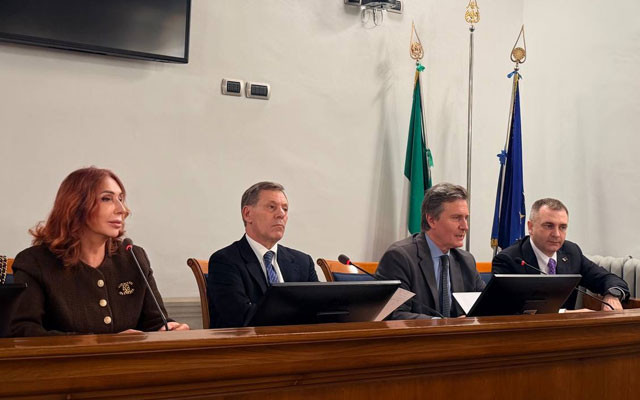
Interaction
«With us — to Europe»: Italian advocacy supports UNBA initiatives
On January 30, a meeting was held in Rome between a delegation from the Ukrainian National Bar Association and the National Bar Council of Italy (Consiglio Nazionale Forense, CNF) on the standards and practices of the legal profession and their significance for Ukraine's European integration process.
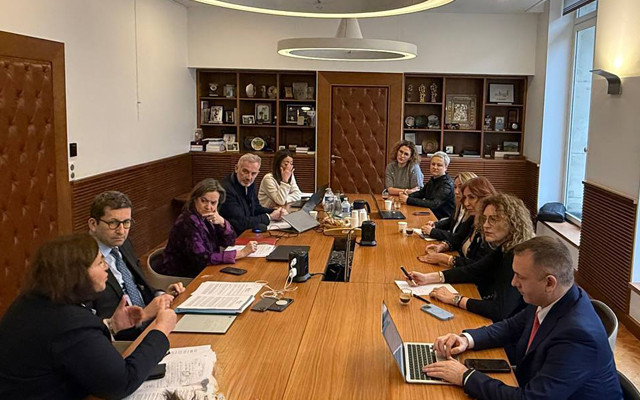
Interaction
France confirms cooperation with UNBA on reforms in the field of the rule of law
On January 29, a working meeting between representatives of the Ukrainian National Bar Association and the French National Bar Council (Conseil National des Barreaux, CNB) took place in Paris.
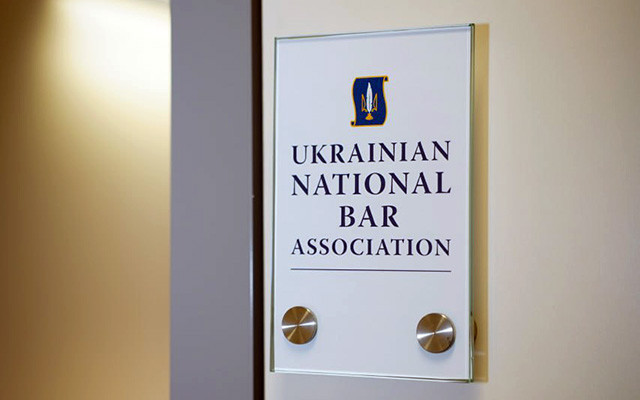
Abroad
UNBA office opens in EU capital
To strengthen the institutional presence of the Ukrainian advocacy community at the European level, an office of the Ukrainian National Bar Association has been opened in Brussels (Belgium), which will serve as a permanent platform for dialogue with European partners.
Publications

Volodymyr Matsko Extradition as a systemic form of rights violations

Victoria Yakusha, Law and Business The anti-corruption vertical cannot «take care» of the Bar as an institution, - acting head of the HQDCB

Censor.net Protecting advocates – protecting justice: addressing concerns about the new law

Ihor Kolesnykov A BRIEF SUMMARY REGARDING THE APPLICATION OF THE ORDER ON EXTENDED CONFISCATION IN LATVIA REGARDING FINANCIAL ASSETS OF…

Valentyn Gvozdiy WORKING IN A WAR ZONE

Lydia Izovitova Formula of perfection

Sergiy Vylkov Our judicial system is so built that courts do not trust advocates

Iryna Vasylyk Advocacy in the proclamation of Independence of Ukraine
